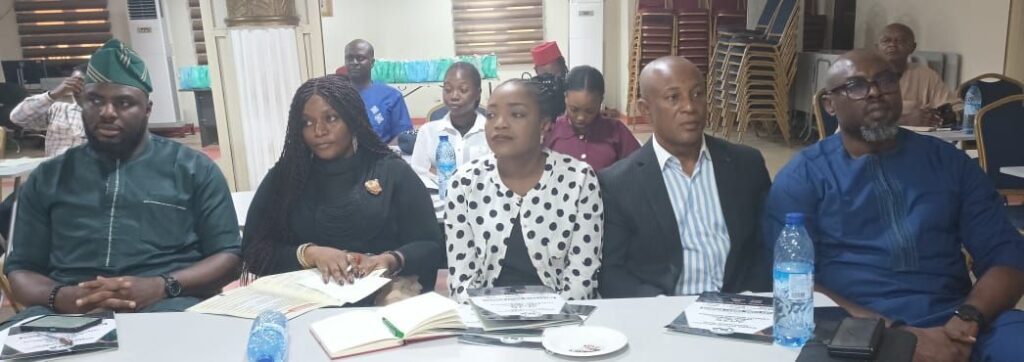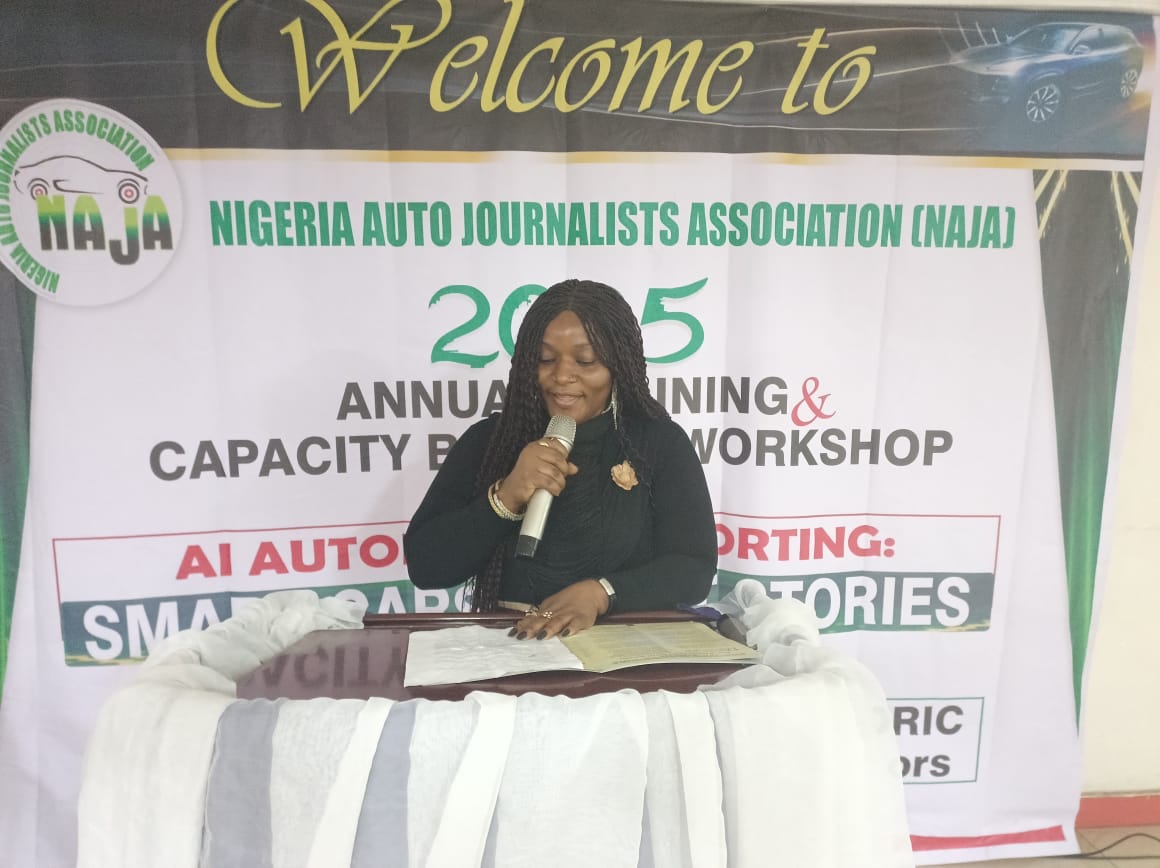Journalists, technology experts, and auto industry leaders gathered in Lagos on October 10 for the 2025 Annual Training and Capacity Building Workshop of the Nigeria Auto Journalists Association (NAJA), with a resounding call for motoring reporters to embrace artificial intelligence (AI) as a vital tool for modern automotive journalism.
Themed “AI Automotive Reporting: Smart Cars, Smart Stories,” the event examined how AI is reshaping the global mobility landscape — transforming how stories are researched, produced, and consumed — and preparing Nigerian journalists for a rapidly evolving digital future.

In his opening remarks, NAJA Chairman, Mr. Theodore Opara, described the training as more than an annual gathering, calling it a strategic platform for knowledge exchange, professional development, and industry collaboration in a fast-changing media and mobility environment.
“AI is no longer a futuristic concept but an everyday reality transforming how cars are designed, built, and experienced — and how stories about them are told,” Opara said.
“As auto journalists, we must evolve with this transformation by understanding not just the technology behind smart mobility, but also the ethics, accuracy, and depth required in reporting it.”
He added that credible, data-driven, and forward-looking journalism is critical in shaping public perception and supporting Nigeria’s journey toward sustainable mobility.
The 2025 edition was hosted in partnership with Jetour Mobility Services, which reaffirmed its commitment to driving innovation and growth in Nigeria’s automotive industry. Representing the company, Christiana Auta underscored the urgent need for journalists to embrace technological evolution.
“AI is rapidly redefining industries and communication. Nigerian automotive journalists must key into this evolution to remain relevant and competitive globally,” she said.
“At Jetour, innovation sits at the heart of our brand philosophy. We proudly market a range of SUVs equipped with intelligent features that enhance both comfort and safety.”
Henry Ojelu, Assistant News Editor at Vanguard Newspapers, encouraged journalists to view AI as an enabler rather than a threat to their profession.
“AI isn’t here to take jobs away — it’s here to make the job easier,” Ojelu noted. “Tools like ChatGPT and Perplexity AI can help reporters research, analyze data, and create content more efficiently. The key is using them to produce stories that are accurate, engaging, and credible.”
Another facilitator, Wale Olajumoke, Head of Training at Tech 365, demonstrated real-time AI applications in data gathering, fact-checking, and multimedia storytelling. He emphasized that journalists who adopt such tools will stand out as authoritative voices in the auto and tech ecosystem.
The interactive workshop featured case studies on emerging automotive technologies, discussions on the ethics of AI-powered reporting, and sessions on integrating innovation into newsroom operations.
Participants described the workshop as timely and transformative, saying it equipped them with practical skills and fresh perspectives on reporting the fast-evolving automotive industry.
Other industry leaders, including Eze Igwe, General Manager, Business Development at Cedric Motors Limited, and Taiwo Omolayo, Head of Strategy, Business Development, and Marketing at R.T. Briscoe, commended NAJA’s focus on AI-driven capacity building. They pledged continued collaboration with the association to advance both the industry and the nation’s technological growth.

